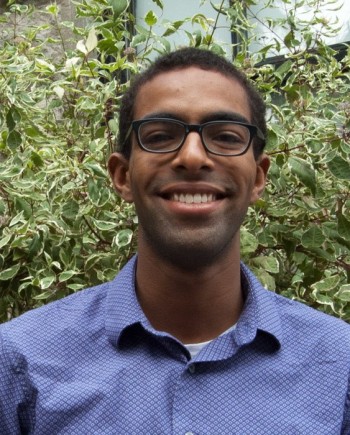Samlau Kutana, U3 Arts, has a strong passion for helping others that has guided him into psychology. At first, however, he didn’t know that he wanted to pursue psychology as a major. Like a lot of university students, Kutana experienced a change of heart in his academic interests midway through his university career.
“I started out as a biology student, and it was really hard, I will admit,” said Kutana. “But I also wasn’t really as interested in learning about [biology] […] so I made the switch to psychology.”
Though biology wasn’t for him, Kutana’s time spent studying in the sciences did not set back his studies. On the contrary, it gave him an edge when he made the transition. Kutana was also able to utilize his knowledge of biology for his minor in computer science. Students with this combination often note that psychology and computer science have a lot in common because of the parallels between brain functioning and computer functioning. Kutana acknowledges this similarity, but still feels that there is a large gap between his two fields of study. Rather than being daunted by this dichotomy, Kutana finds it enjoyable.
As a fourth-year student in psychology, Kutana has had time to identify his key interest in the field, and the ways in which it is changing.
“I really like personality psychology,” said Kutana. “Right now, I’m just really interested in how we’re going to revamp our classification of mental disorders. [The researchers for the Diagnostic Statistics Manual are] trying to move away from rigid categorizations and more into a spectrum-based approach.”
What drew Kutana into the field in the first place was his underlying desire to help people, and he hopes to go into teaching or possiby counselling. He speculates that his desire to help people was passed down to him by his parents, who are both doctors. In particular, his dad, who is originally from Ghana, works on developing the medical community there.
“My dad has been really interested in giving back to the [Ghanaian] community,” Kutana said. “He’s been trying to build up their medical infrastructure. He’s been setting up internships with students at Boston Medical Centre to go to Ghana. I’ve been really inspired by that as a way to give back from what I have, and what I’ve gotten.”
Kutana’s passion for helping others also comes from his extensive time working as a lifeguard and swim instructor in his hometown of Sharon, Massachussetts. While other swim instructors struggled with staying patient when working with children, Kutana found himself able to remain calm quite easily. For this reason, his preference is to teach children who find swimming scary or challenging.
“I never want to yell at kids—I’m never going to do that [….] It was kind of stressful for me watching other people do that,” Kutana explained. “So I would request the kids that were getting yelled at by the lifeguards, to get them in my class, because they’re not doing that well.”
One swimming student in particular stands out in Kutana’s mind when discussing his natural ability to teach.
“The most challenging and the most rewarding thing is connecting with kids who really don’t have any self-confidence,” Kutana said. “I had one kid who had no self-confidence [because of] the fact that he couldn’t swim, and his parents couldn’t swim.”
Teaching a student who does not believe they can learn what is being taught is a daunting task for any instructor, yet Kutana explained his strategy for dealing with this situation.
“We were able to just turn it into games and make it fun, and it was cool to watch him go from level two to level three and four and five in the span of like eight weeks,” he said. “It was really amazing.”
As someone with a propensity for helping people and a natural ability to interact well with others, Kutana is a strong example of leadership within the McGill community, and he hopes to apply his passion and patience when he graduates next May.
Q&A
McGill Tribune (MT): Would you rather fight one horse-sized chicken, or a hundred chicken-sized horses?
Samlau Kutana (SK): One horse-sized chicken is a formidable opponent. It’s got a sharp beak and talons and is probably pecking really fast. Chickens are pretty smart, and it would have all the pent-up chicken rage because we’ve enslaved trillions of their fellow chickens. I don’t want to fight that. A hundred chicken-sized horses would also be hard, but I feel like it’s doable. You just have to find the high ground.
MT: Do you have a person in your life that you look up to the most?
SK: Not really, but I try to look at people in my friend group and in my life who have qualities that I admire and try to emulate that in myself [….] So it’s more just be your own person, but incorporate the best that you see out there and everything will fall into place.
MT: If you could meet any person, living or dead, who would it be?
SK: I’d like to have dinner with George Washington Carver. He was a crazy smart botanist and inventor, who first introduced peanut butter to the world. He had over 100 recipes involving peanuts; the dude was magical. I’d want to get his opinion on a Reese’s cup as well.









